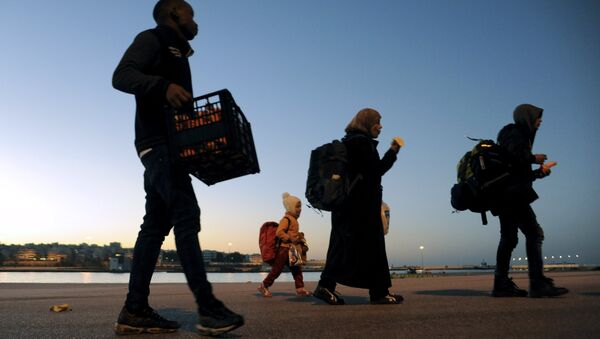According to him, over 27,000 refugees remain stranded in Greece after the Balkan countries shuttered their borderer to keep the migrants away.
“The Greek government no longer controls the situation… The country is in deep crisis, whose impact will soon be felt all across Europe,” Evren Dede told Sputnik.
Athens has found itself in a bad fix and desperately needs EU help, primarily financial, to accommodate the migrants. The Greek army is currently setting up five new camps for the refugees who will be accommodated according to religion, language and race.
This has been done to prevent conflicts that might arise over matters of faith,” the journalist emphasized.
Evren Dede said that if Ankara fails to cut the number of migrants heading north through Greece by the March 7 EU-Turkey summit, Greece risks becoming a rogue state within the 28-nation bloc.
When asked about the way the feel about the incoming migrants Evren said that, according to a recent poll, almost half of the country’s 11 million people voiced their support for and desire to help the newcomers.
Ninety-two percent of respondents complained about the lack of EU help for the country’s effort to tackle the migrant crisis and around 60 percent blamed their own government for not doing enough.
Evren Dede also mentioned the negative impact the migrant crisis has had on the country’s tourism industry.
“Prime Minister Alexis Tsipras and the government are trying to minimize the potential damage by keeping the media out of the refugee camps. They fear that the disturbing photographs made there could scare off foreign tourists who account for a hefty portion of the country’s budget,” Evren Dede noted.
“We have already seen a significant drop in the number of hotel bookings both on the Aegean Sea and elsewhere in the country,” he added.



